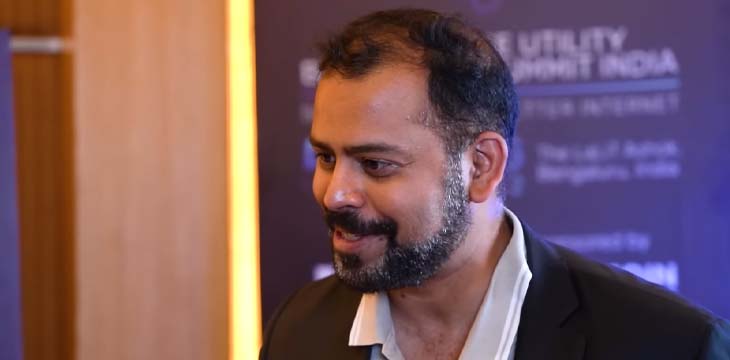|
Getting your Trinity Audio player ready...
|
Payments is one of the industries that was massively affected by the pandemic. Before COVID-19, payments were often made through cash, although digital payments are already becoming popular. And now that we are slowly transitioning to a COVID-free world, most people have already accepted digital payments worldwide. In fact, in India alone, over 80 million users made their first digital merchant payment during the start of the pandemic, according to the World Bank.
Payments is a broad industry, and it’s what Sudeep Choudhari, the head of the National Payments Corporation of India (NPCI), is working on. Sudeep was present at the Enterprise Utility Blockchain Summit in India, where speakers like nChain Chief Scientist Dr. Craig Wright and IPv6 Forum President Latif Ladid tackled emerging tech like IPv6, web3, and blockchain.
Choudhari joined CoinGeek Backstage for an interview to talk about his role at the NPCI, how the organization builds a distributed public ledger that will enable web3, and his opinion about the BSV blockchain.
What is the National Payments Corporation of India? Choudhari explains, “[the] National Payments Corporation of India is essentially the organization which runs the payment rails of the country. So it’s about the banking and financial services industries within the country, and it provides the ability to transfer funds at a much, much more viable charge across the country.”
As the head for India Blockchain, Choudhari said that his job involves building “a distributed public infrastructure for the country, to make it available for web 3.0 as we go forward there.” Currently, the NPCI is building mobility payments with web2.
Choudhari said payments is challenging as they deal with billions of people—1.4 billion to be exact. However, he noted that it’s part of their duty in the NPCI, and they resolve issues, no matter how difficult it is, “one engineering problem at a time.”
“The biggest problem that we face is to basically build a protocol for all. [A] protocol which can actually help create payment mechanisms for somebody who’s having good infrastructure all the way down to somebody who actually has no internet..that becomes the fundamental problem that we are trying to achieve and all that while maintaining low latency and high throughput,” he explained.
How can BSV help the national payment system of India? Choudhari admits he still needs to research and educate himself on the utility of BSV. Nonetheless, he says it is a promising technology with a nice take on how Bitcoin should scale.
“All assets of digital types and including crypto assets as well have a role in the future..while we have limitations for its operations today; eventually these limitations will be overcome,” Choudhari remarked.
“Once these limitations are overcome, I think it’s a promising place for Bitcoin BSV to actually expand within the ecosystem. Would it be in the enterprise space? Absolutely…Would it be in the payment space? We would definitely consider that one of the options, but what exactly would it be is something that is for the future to tell us,” Choudhari said.
Watch: India will be the biggest blockchain nation in 5 years – IPv6 Forum’s Latif Ladid

 02-12-2026
02-12-2026 




